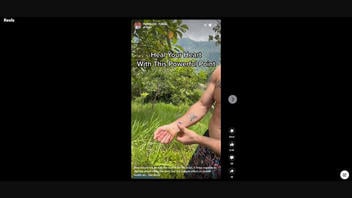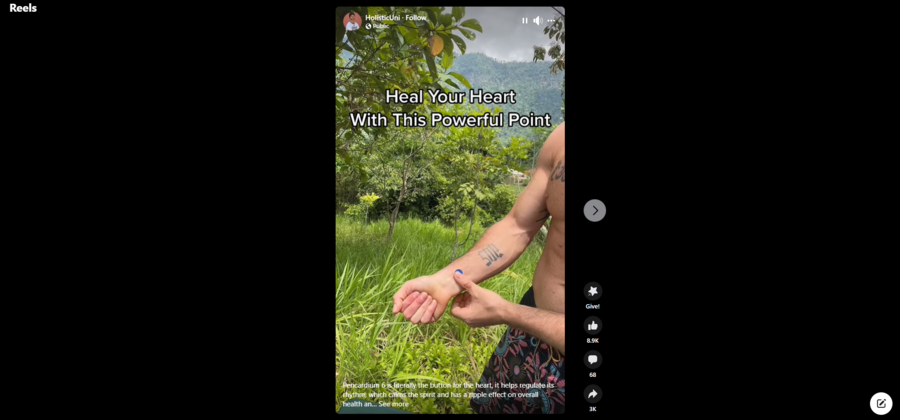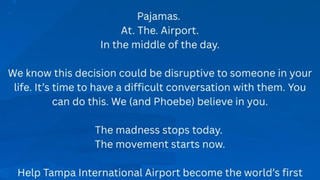
Is there a "button for the heart" above your wrist and does it help alleviate conditions such as heart pain and epilepsy? No, that's not true: While stimulation of Pericardium 6 -- an acupuncture and acupressure point located on the wrist -- may be useful for helping patients deal with postoperative nausea and vomiting, there is no scientific evidence at the time of writing that pressing the spot helps with heart pain or epilepsy.
The claim appeared in a reel posted to Facebook and published on April 22, 2023. The reel featured a person whose face was out of the frame of the camera. They were showing viewers the location of the so-called "button for the heart" and demonstrating how to press it to "release the stagnation from in and around the chest." Context clues in the video indicate that the name of this "button" is Pericardium 6. Text in the reel claims that pressing Pericardium 6 will help with several conditions like heart pain and epilepsy. The caption of the reel read:
Pericardium 6 is literally the button for the heart, it helps regulate its rhythm, which calms the spirit and has a ripple effect on overall health and well being. Grab the free acupressure ebook in my bio to learn more life changing points :) #acupressure #brokenheart #chestpain
This is how the reel looked on Facebook at the time of writing:

(Source: Facebook screenshot taken on Wed Apr 26 16:53:55 2023 UTC)
Acupuncture is a traditional medicinal practice that originated in ancient China. Most commonly, it involves the use of metal needles placed at specific points on the body to assist in regulating an energy flow, called Qi, in the body. Acupressure is a massage practice that utilizes the same points targeted in acupuncture.
Lead Stories contacted the American Epilepsy Society for expert assement of the claim. On April 28, 2023, we received email commentary from Dr. John Stern, director of the Epilepsy Clinical Program at UCLA and a professor in the Department of Neurology at UCLA. Stern said that a 2014 systematic review of studies examining the treatment effects of acupuncture on epilepsy did not find compelling evidence that acupuncture worked as a treatment.
Although a handful of studies not included in the comprehensive review have concluded that there is some benefit of using acupuncture to treat epilepsy, Stern said that "this does not alter the overall assessment because the evidence from many of the studies was low quality according to standard measures of clinical research, and the studies of moderate quality did not find benefit from acupuncture." Even further, Stern said that he could not find any research that specifically examined the effects of acupuncture treatment focused on the body's Pericardium 6 location in relation to epilepsy:
One difficulty in assessing the benefit is that Traditional Chinese Medicine describes several acupuncture points as providing benefit for epilepsy, and research studies have differed in which acupuncture point was investigated. As such, the overall assessment of acupuncture in epilepsy is for acupuncture in general, and the Pericardium 6 location has not been singled out in the research I identified in my search.
Similarly, heart pain as related to stimulating Pericardium 6 is not as widely studied. When searching the National Library of Medicine's PubMed Central database at the time of writing for articles related to "Pericardium 6", "heart" and "pain" and "Pericardium 6" and "cardiovascular", there are no results explicitly stating that the acupuncture point can specifically relieve heart pain.
Lead Stories also reached out to the American Heart Association and the American College of Cardiology for comment on the claim. We will update this story with any responses.
Some peer-reviewed articles have been published specifically studying the effects of stimulation of Pericardium 6 through acupuncture and acupressure. There appears to be some evidence that acupuncture treatments performed at Pericardium 6 may help with postoperative nausea and vomiting. A 2019 peer-reviewed article discusses the potential benefits of intradermal thumbtack needle Pericardium 6 therapy for patients who have undergone craniotomy, a type of skull surgery. A 2015 systematic review article that compared literature on the topic of postoperative nausea and vomiting treatment indicates that compared to a sham treatment, stimulation at Pericardium 6 can be effective in treating postoperative nausea and vomiting.
According to the National Center for Complementary and Integrative Health (NCCIH), there is some evidence that acupuncture could be a useful option for pain relief in some patients:
Research has shown that acupuncture may be helpful for several pain conditions, including back or neck pain, knee pain associated with osteoarthritis, and postoperative pain. It may also help relieve joint pain associated with the use of aromatase inhibitors, which are drugs used in people with breast cancer.
An analysis of data from 20 studies (6,376 participants) of people with painful conditions (back pain, osteoarthritis, neck pain, or headaches) showed that the beneficial effects of acupuncture continued for a year after the end of treatment for all conditions except neck pain.
Although it is a National Institutes of Health agency, NCCIH addresses "complementary medicine," which is used along with standard medical treatment but is not considered by itself to be standard treatment and is generally less well-researched.
The NCCIH resource also says that there is evidence that acupuncture can assist with non-pain-related conditions like seasonal allergies.
A 2014 systematic review article about studies related to acupressure and pain has shown that there is evidence that acupressure can also be effective for pain relief.
Although some acupuncture websites (here and here) state that chest or heart pain and epilepsy may be indications or reasons that Pericardium 6 should be stimulated, they do not claim that stimulating the spot will actually help with those conditions.
Lead Stories has published several fact checks related to acupuncture. Those articles can be found here.
















